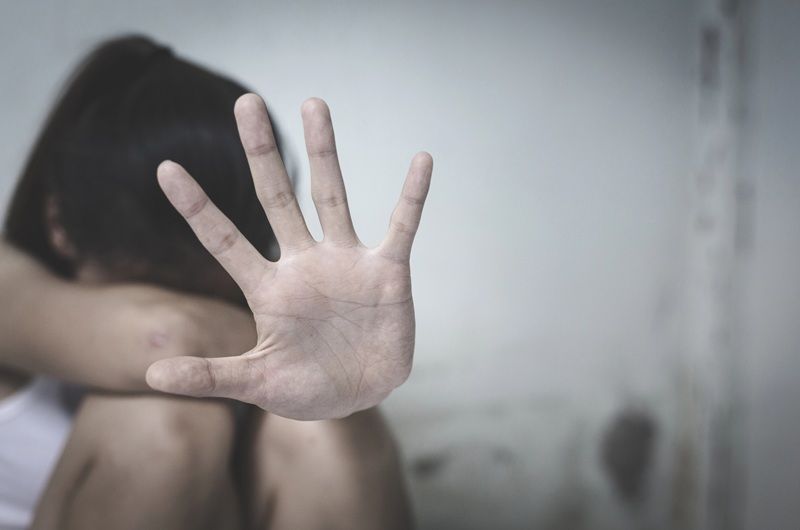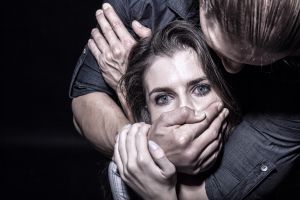Penalties You Face For Domestic Violence Charges In Virginia
Penalties You Face For Domestic Violence Charges In Virginia
Summary:
In Virginia, a domestic violence conviction can result in up to 12 months in jail and a $2,500 fine for a first offense. Repeat offenses may escalate to felony charges with up to five years in prison. Such convictions can also lead to loss of firearm rights, employment challenges, housing difficulties, and complications in child custody cases.

Getting arrested for domestic violence in Virginia doesn’t just mean a night in jail. It can set off a chain reaction that wrecks your record, rattles your finances, and jeopardizes your job and housing. And if you’ve been charged before? The penalties only get tougher.
Before panic sets in, get the facts. Here’s what’s really at stake and why you need to take the situation seriously.
What Constitutes Domestic Violence In Virginia?
In Virginia, domestic violence is a category that covers a range of behaviors. It includes physical violence, threats, intimidation, or any act intended to cause harm or fear against a family or household member. That could be a spouse, ex-spouse, someone you live with, your child’s other parent, or even a roommate.
The law is broad on purpose, aiming to protect those in close domestic relationships from physical and emotional harm. Importantly, you don’t have to leave visible marks or injuries to be charged.
A raised voice, a threatening gesture, or a single shove can lead to an arrest. Police in Virginia may err on the side of caution; if they suspect violence or threats occurred, they’ll likely make an arrest on the spot.
And once that charge is filed, things can escalate quickly. So what happens next? Let’s look at the criminal penalties.
What Happens If You’re Convicted?
Getting convicted of domestic violence in Virginia isn’t just a slap on the wrist. Even a first offense can derail your life fast, with jail time, steep fines, and mandatory programs. And if you’ve been charged before? Things get more serious with every repeat.
Virginia doesn’t take these charges lightly. The courts aim to punish and prevent, which means consequences come swiftly and stick around long after the case is over.
First Offense
A first-time domestic assault and battery charge is a Class 1 misdemeanor. That means up to 12 months in jail and a $2,500 fine. And don’t expect leniency just because it’s your first time. Judges often require participation in counseling or anger management classes, even if the case doesn’t go to trial.
This kind of charge stays on your criminal record, affecting job prospects and housing. A misdemeanor may sound minor, but in real life, it causes long-term damage.
Repeat Offenses
Virginia law has no patience for repeat offenses. If you’ve already been convicted twice for domestic assault within the past 20 years, a third charge is automatically upgraded to a Class 6 felony. Now you’re looking at one to five years in prison, or up to 12 months in jail with a $2,500 fine depending on how the court rules.
The shift from a misdemeanor to a felony is massive. Felony charges follow you everywhere. They make employment harder, housing applications riskier, and relationships more strained. And getting that record expunged? Nearly impossible.
The legal system looks at the bigger picture; your entire lifestyle may be upended by one conviction.
So now that you know how the courts punish domestic violence, let’s look at what happens when protective orders come into play and how they add another layer of restriction.
When The Court Says Stay Away
If you’re charged with domestic violence, the legal trouble doesn’t end with jail time or fines. One of the first steps courts take is issuing a protective order. It’s a legal demand to back off: no calls, no texts, no surprise visits. Break the rules, and you’re looking at even more charges, no matter how minor the original incident seemed.
Virginia issues different types of protective orders depending on the situation:
- Emergency Protective Order (EPO): Usually issued by a magistrate and valid for up to 72 hours.
- Preliminary Protective Order (PPO): Lasts up to 15 days or until the full court hearing.
- Permanent Protective Order: Can be extended up to two years, with the possibility to renew.
These orders can kick you out of your home, limit access to your children, and bar you from owning or carrying firearms. They’re serious, and violating one is a separate crime that adds more heat to your case.
Protective orders are often just the start. The next layer of impact? The moment these charges touch your rights, starting with your ability to own or carry a gun. Let’s break that down.
Impact On Firearm Rights
A domestic violence charge can strip away your right to own or carry a firearm, sometimes permanently. Under federal law, anyone convicted of a misdemeanor crime involving domestic violence is banned from possessing firearms. Virginia takes it further.
If a protective order is in place, even before a conviction, you may be required to surrender any guns you own. This can affect hunters, military personnel, law enforcement officers, and security workers.
Losing your firearm rights isn’t just about guns, it’s about losing career opportunities and personal freedoms. And that’s just one way a conviction can shake up your life. Next up: how it affects where you live and work.
Employment & Housing Consequences
A domestic violence conviction doesn’t stay in the courtroom; it follows you into job interviews and rental applications. Employers often run background checks, and a violent offense can make your résumé a hard sell. Certain professions, like healthcare, education, or law enforcement, might be completely off-limits after a conviction.
Finding housing can be just as difficult. Landlords may reject your application based on a criminal record, especially one tied to violence or protective orders. Even if you’re already renting, some leases include clauses that allow eviction after criminal charges.
And if you have children? That’s where things get even more complicated. Let’s talk about custody and visitation.
Child Custody & Visitation
Courts in Virginia take domestic violence seriously when it comes to deciding custody and visitation. A conviction or even just a protective order can influence whether you get joint custody, supervised visits, or no access at all. Judges prioritize the child’s safety above all else, and a history of abuse can easily tip the scales against you.
Even if you’re the child’s primary caregiver, the court may limit your rights if there’s any evidence of violence or ongoing risk. Rebuilding trust with the court takes time, documentation, and often legal help.
And the effects don’t stop there. A conviction can hang over your head for years, shaping how people see you and limiting your future in ways you might not expect. Let’s look at the long-term fallout.
Long-Term Implications
A domestic violence conviction doesn’t fade with time. It leaves a permanent mark that can follow you for the rest of your life. Even after serving your sentence or paying your fines, the record sticks, and so do the consequences. Here’s what you’re really up against:
- Permanent Criminal Record: This can make passing background checks nearly impossible.
- Social Stigma: Friends, family, and coworkers may view you differently, even if you’ve changed.
- Immigration Issues: Non-citizens can face deportation or be denied permanent residency or citizenship.
These aren’t minor setbacks; they’re life-altering roadblocks. But there are ways to fight back. If you’re facing charges, the right legal strategy can make all the difference. Here’s how defense comes into play.
Legal Defenses Our Domestic Violence Attorneys Can Employ
At The Irving Law Firm, we know that not every accusation tells the full story. A domestic violence charge can turn your world upside down, but you’re not powerless. With the right legal strategy, there’s a real chance to challenge the case against you and protect your future.
Here are some of the defense approaches our attorneys may use:
- Lack of Evidence: If the prosecution can’t prove their case beyond a reasonable doubt, we’ll expose those gaps.
- False Accusations: Some charges stem from spite, custody battles, or misunderstandings. We’ll work to bring the real story to light.
- Self-Defense: If you acted to protect yourself or someone else, the law might be on your side.
- Violation of Rights: If the police didn’t follow proper procedure, certain evidence may be inadmissible in court.
Every case is different. That’s why we take the time to understand your situation inside and out, and craft a defense that fits.
Facing domestic violence charges in Virginia? Don’t wait. Contact The Irving Law Firm today for a confidential case review. Let us fight for your rights and your future.





